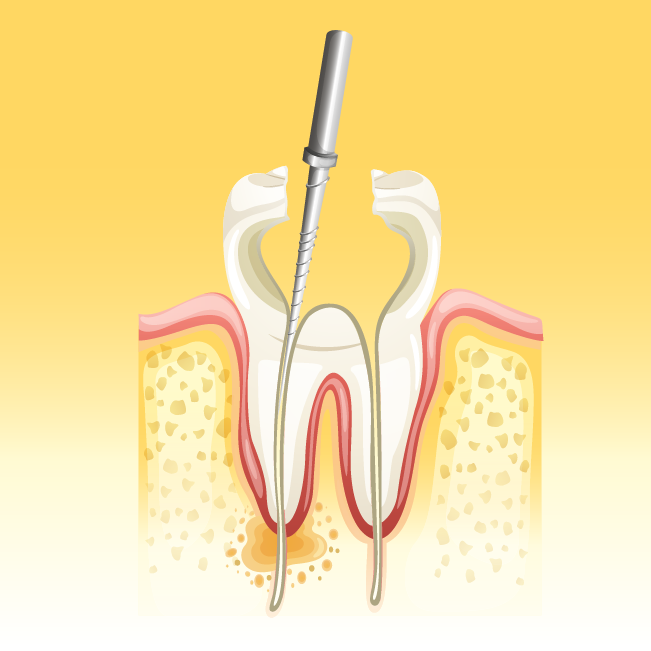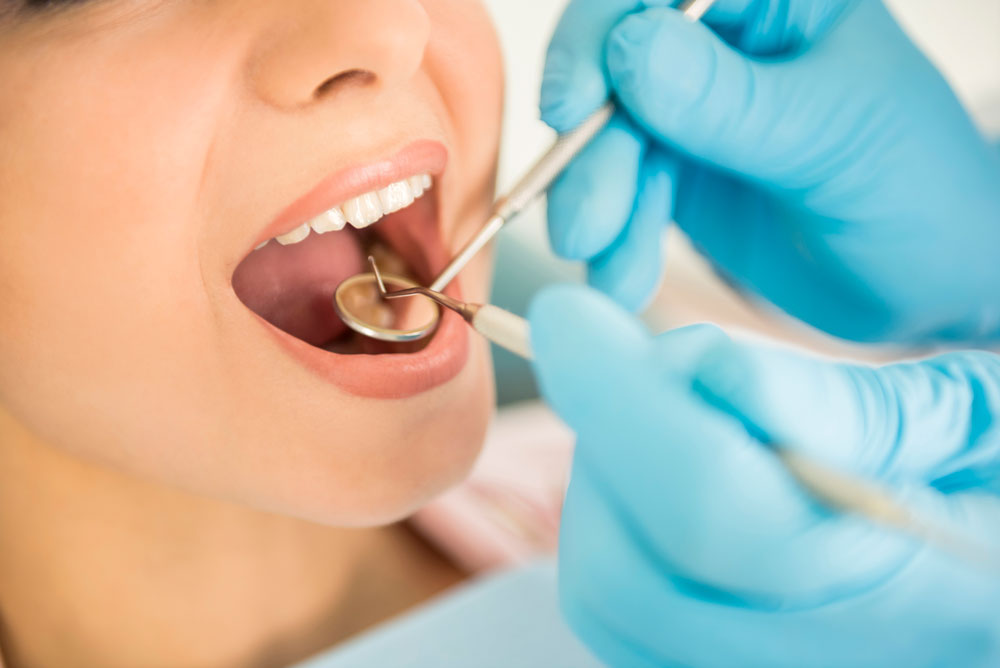When is root canal treatment needed?
When a caries is left untreated, it slowly makes its way past the enamel and engine layers of the tooth and reaches the nerves. When this happens, and the nerves become infected, the toothache drastically increases, converting into constant, throbbing pain. The only relief from this pain is a root canal treatment which effectively is to remove the nerves from the tooth and fill the root canals with gutta-percha (dental material).
Treating the pain with painkillers would not be an efficient treatment, and can lead to a more substantial infection, affecting the nerves in the jaw.
What is the root canal treatment procedure?

Before any treatment has been carried out, your dentist will first examine the tooth and gum around it. For a complete diagnosis, an X-ray may be needed.
Once the diagnosis has been completed, your dentist will explain the course of action, including treatment and associated costs.
If a dental abscess has been formed, your dentist may recommend a course of antibiotics to treat the infection. When it has been cured, the dentist will apply anaesthetic to ensure you feel no pain. They will then drill the tooth to reach the pulp and will remove the infected nerves using specifically designed dental instruments. When the canals have been cleared out, the dentist will fill it with gutta-percha, a specially designed dental material. The final touch is filling the tooth with composite resin.
Is root canal treatment painful?

Sadly, tooth pulp infection is one of the most painful dental issues. The infected nerves cause throbbing pain inside the jaw which can even reach the ears.
When your dentist diagnoses a tooth infection and resorts to a root canal treatment, every measure will be taken to ensure you feel no pain during the procedure. A course of antibiotics or another type of anti-inflammatory medications may be needed before the actual treatment is carried out, to cure the prominent infection.
Before the root canal procedure is carried out, your dentist will administer topical sedation and ensure there’s no sensitivity. Intravenous sedation is available for the nervous patients who require it. Furthermore, all of our dentists have been trained in providing care for anxious dental patients.
Alternatives to root canal treatment?

Dental pulp infection is irreversible. Once the nerves become infected, medication can help relieve the throbbing pain for a short time. Due to the very susceptible environment, the infection cannot be cured unless it is removed.
When the root canal treatment is carried out, this effectively leaves the tooth without blood circulation, which makes it more fragile and prone to damage. Nonetheless, to preserve the integrity of the bone structure, dentists will always recommend it instead of an extraction, which is the only alternative treatment.
Tooth extraction, as an alternative to root canal treatment, is efficient and provides for quick pain relief. Nonetheless, аn implant or a dental bridge will be required following an extraction to ensure that your chewing capacity is not diminished.
Request a callback
If you’d like to book your appointment directly online, please use the link below. Please note that we require a deposit to secure your appointment.
We accept walk-in patients and emergency appointments. To ensure we’re able to see you immediately, please book your appointment online when you’re on your way, or give us a call on 020 7278 6362.
We’re available Monday to Saturday, 9am until 5pm.
